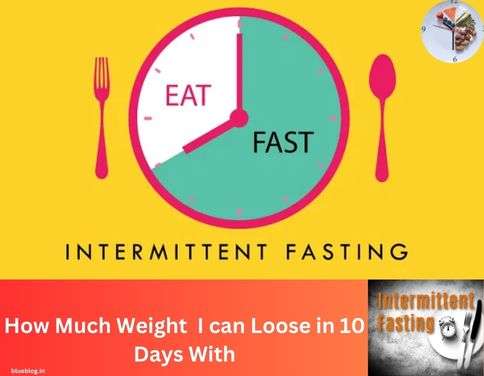The weight you can lose in 10 days with intermittent fasting varies based on factors like starting weight, diet, and exercise.
Intermittent fasting has gained popularity as a weight loss strategy. But how much weight can one realistically lose in just 10 days with this approach? To understand this, let’s delve into intermittent fasting and its impact on weight loss.
Intermittent fasting involves cycling between periods of eating and fasting. Popular methods include the 16/8 method, where you fast for 16 hours and eat within an 8-hour window, and the 5:2 method, involving eating normally for 5 days and restricting calorie intake on 2 non-consecutive days. Several factors influence weight loss during intermittent fasting, including starting weight, diet quality, and exercise routine. Several factors influence weight loss during intermittent fasting, including starting weight, diet quality, and exercise routine. Research suggests that individuals may lose around 1-2 pounds per week with intermittent fasting. Therefore, in 10 days, a weight loss of 1-4 pounds is achievable for some.
Understanding Intermittent Fasting:
Different Methods of Intermittent Fasting
- 16/8 Method: This method involves fasting for 16 hours and restricting eating to an 8-hour window daily. It’s one of the most popular and straightforward approaches.
- 5:2 Diet: Participants eat normally for five days a week and restrict calorie intake to around 500-600 calories on the remaining two non-consecutive days.
- Eat-Stop-Eat: This method involves a complete fast for 24 hours once or twice a week, with no calorie intake during the fasting period.
- Alternate-Day Fasting: Participants alternate between fasting days, where they consume minimal calories, and eating days, where they eat ad libitum.
- Warrior Diet: This method involves fasting for 20 hours each day and consuming one large meal within a 4-hour window in the evening
How Intermittent Fasting Affects Weight Loss
Intermittent fasting can lead to weight loss through various mechanisms. During fasting periods, the body depletes glycogen stores and begins burning fat for energy. Additionally, it may increase metabolic rate and promote fat oxidation. Moreover, intermittent fasting can improve insulin sensitivity, reduce inflammation, and promote the release of hormones like norepinephrine, which aids in fat breakdown However, individual responses to intermittent fasting may vary based on factors like starting weight, diet quality, and exercise habits.
Tips for Maximizing Weight Loss:
Stay Hydrated
Staying hydrated is essential for overall health and well-being. While drinking water is crucial, you can also stay hydrated by consuming water-rich foods like cucumbers, watermelon, strawberries, and oranges. Additionally, opting for nutrient-dense foods such as leafy greens, nuts, seeds, and lean proteins not only helps maintain hydration but also provides essential vitamins, minerals, and antioxidants that support overall health. By incorporating these foods into your diet, you can stay hydrated while nourishing your body with essential nutrients.
Potential Benefits of Intermittent Fasting
Intermittent fasting offers various health benefits beyond weight loss:
- Improved Heart Health: Intermittent fasting may reduce risk factors for heart disease, including blood pressure, cholesterol levels, and inflammation.
- Enhanced Cognitive Function: Some studies suggest that intermittent fasting may improve brain function, including memory, focus, and overall cognitive performance.
- Increased Metabolism: Intermittent fasting can boost metabolism, leading to more efficient calorie burning and potentially aiding in weight management.
- Better Blood Sugar Control: It may help regulate blood sugar levels and improve insulin sensitivity, reducing the risk of type 2 diabetes.
- Cellular Repair and Longevity: Intermittent fasting triggers cellular repair processes and may promote longevity by enhancing autophagy, a cellular cleansing mechanism
Potential Side Effects:
Before starting any new healthcare regimen, it’s crucial to consult with a qualified healthcare professional. They can provide personalized advice based on your medical history and current health status, helping to mitigate potential risks and ensure safety. While many healthcare interventions offer benefits, they may also come with potential side effects. Understanding these risks is essential for making informed decisions about your health.
Follow Us On Instagram Follow Us On XAlso read: Weight Loss Journey: Understanding The 3-8-3 Rules


[…] Also read: How much weight can I lose in 10 days with intermittent fasting […]